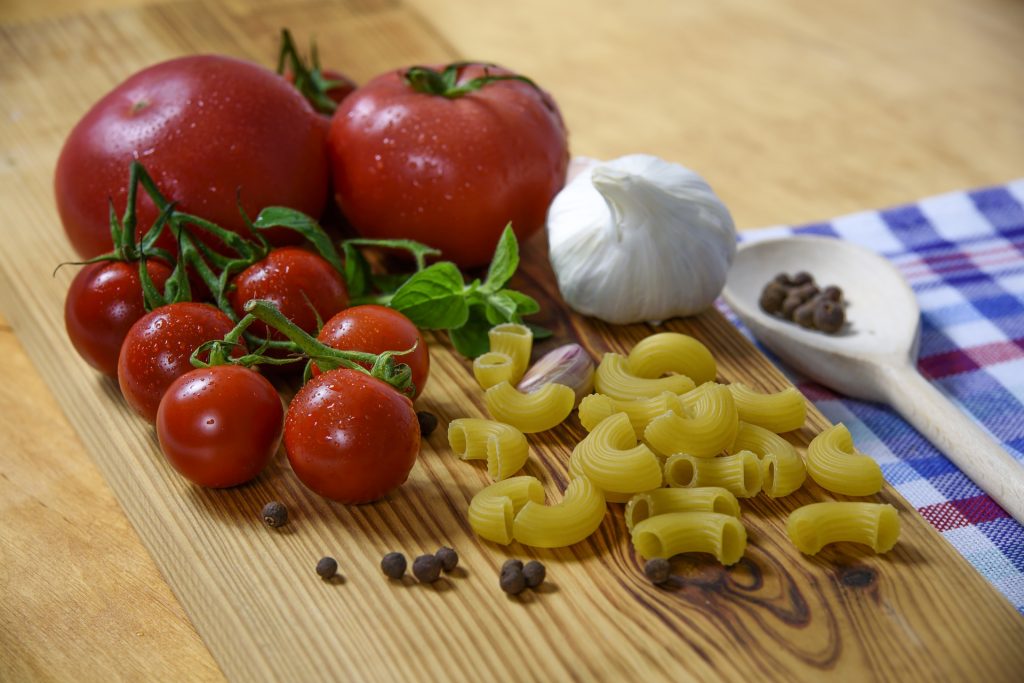 Psoriasis is a disease of chronic inflammation that affects the skin. Around 2 % of the population living in Western nations are known to suffer from psoriasis, making it quantitatively an important disease. Psoriasis possesses an immune component whereby T helper cells infiltrate the skin and cause chronic low grade inflammation. As well as inflammation, which can cause heat, pain, redness, swelling and loss of function, psoriasis is characterised by a hyperproliferation of keratinocytes (skin cells), and this can cause erythrosquamous psoriatic skin lesions located on the elbows, scalp, knees and lower back. The cause of psoriasis is not fully understood, but associations between being overweight and having psoriasis have been reported in the scientific literature. As psoriasis is a chronic disease of inflammation, and the typical Western diet can cause both inflammation and weight gain, this may suggest that the consumption of a typical Western diet may be a causative factor in the development of psoriasis.
Psoriasis is a disease of chronic inflammation that affects the skin. Around 2 % of the population living in Western nations are known to suffer from psoriasis, making it quantitatively an important disease. Psoriasis possesses an immune component whereby T helper cells infiltrate the skin and cause chronic low grade inflammation. As well as inflammation, which can cause heat, pain, redness, swelling and loss of function, psoriasis is characterised by a hyperproliferation of keratinocytes (skin cells), and this can cause erythrosquamous psoriatic skin lesions located on the elbows, scalp, knees and lower back. The cause of psoriasis is not fully understood, but associations between being overweight and having psoriasis have been reported in the scientific literature. As psoriasis is a chronic disease of inflammation, and the typical Western diet can cause both inflammation and weight gain, this may suggest that the consumption of a typical Western diet may be a causative factor in the development of psoriasis.

Psoriasis is a skin disease characterised by inflammation. The typical Western diet is a diet of inflammation that may contribute significantly to inflammation. Eating traditional diets such as the Mediterranean diet and other high quality diets may significantly reduce inflammation and this may alleviate the severity of the symptoms in diseases such as psoriasis.
In a recent study (2016) researchers investigated the effects of long term weight loss on the symptoms of psoriasis. Patients with psoriasis underwent a weight loss phase that included energy reduction for 16 weeks, and then followed a weight maintenance phase for 48 weeks. Weight loss after the 16 week weight loss phase was 15 kg and the Psoriasis Area and Severity Index (PASI) was reduced by 2.3, and the Dermatology Life Quality Index (DLQI) also reduced by 2.3. After the full 64 week study period weight loss was 10.1 kg and the PAST and DLQI scores were 2.9 and 3.9. Therefore the weight loss experienced by the subjects appears to have been beneficial towards their psoriasis. However, care needs to be taken when interpreting these results as weight loss is likely not the only change in the diets of the subjects. For example, it is highly likely that the subjects made some dietary changes to the types of foods eaten and these dietary changes could have played a considerable part in reducing the severity of the psoriasis.
Eat Well, Stay Healthy, Protect Yourself
RdB
